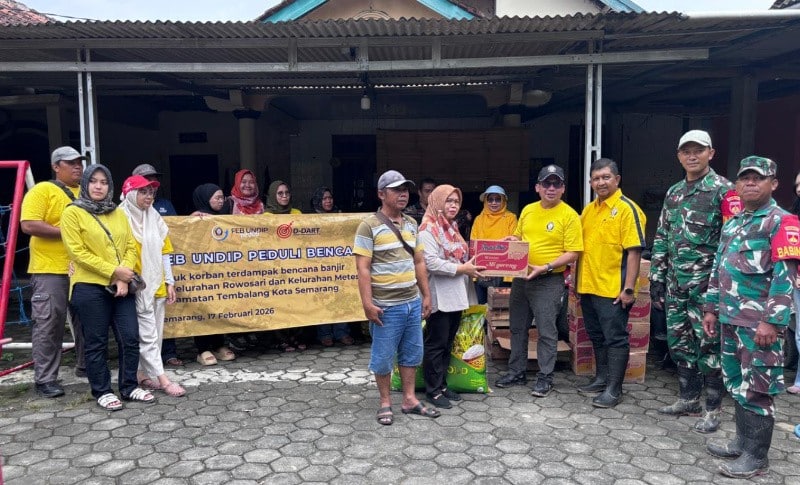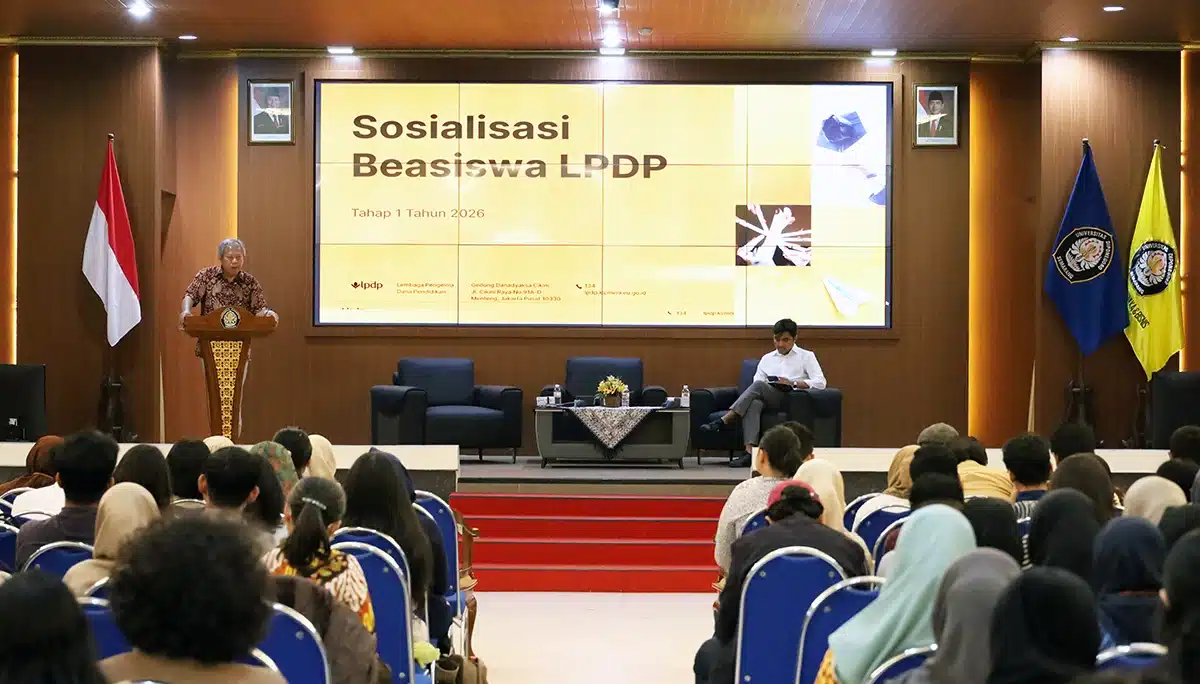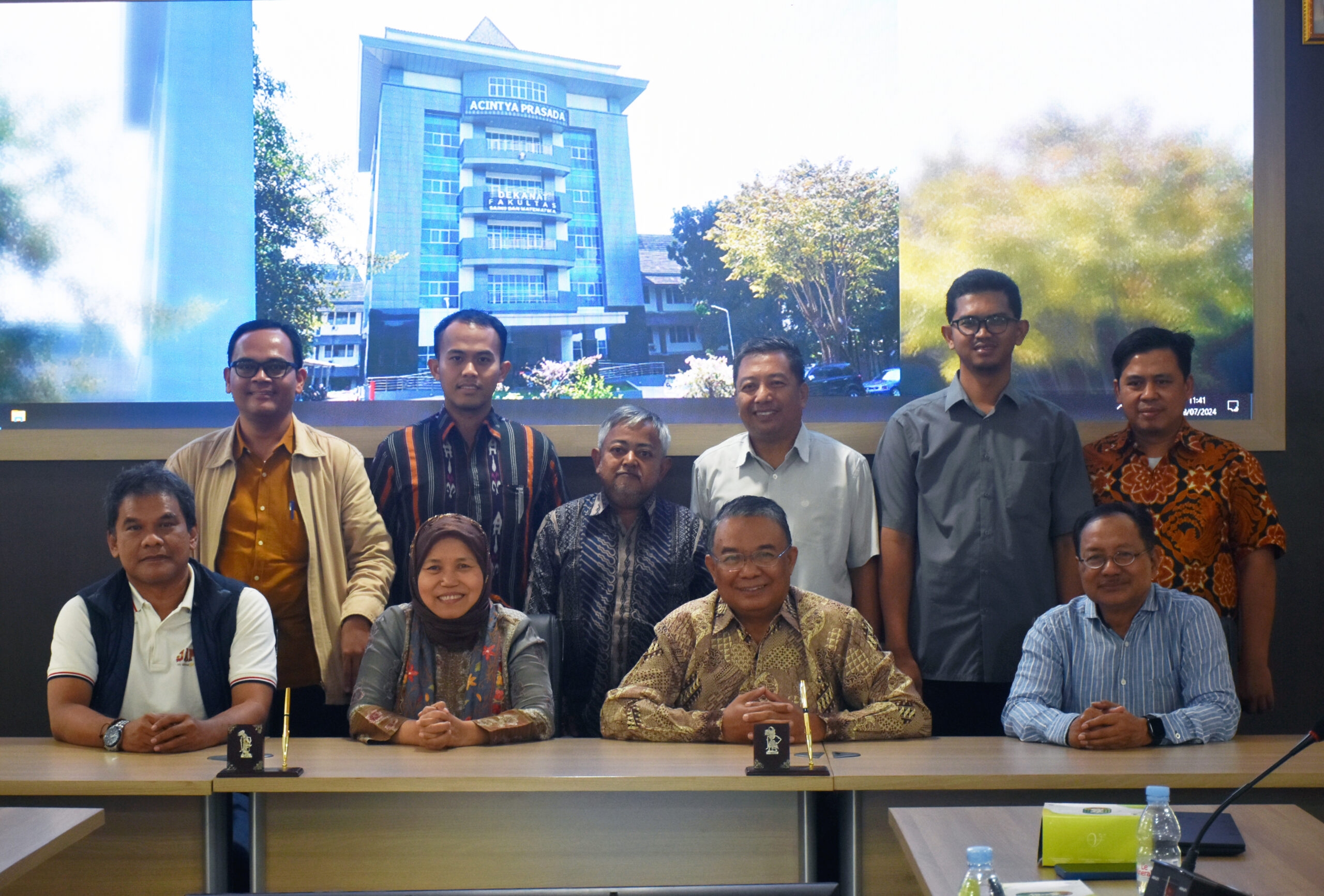Semarang, Central Java – Diponegoro University, through its Center for Plasma Research Team (CPR-TEAM), held a meeting with BRIN (National Research and Innovation Agency) to discuss plans for cooperation in utilizing nuclear energy for power in anticipation of the 2060 Net Zero Emission target. The nuclear power plants (PLTN) under study include both nuclear fusion and nuclear fission. Nuclear fusion involves the merging of light atomic nuclei to produce energy. Fusion nuclear power plants have yet to be realized globally. Fusion nuclear power plants using tokamak plasma are currently being researched at the International Thermonuclear Experimental Reactor (ITER). Plasma technology studies are advanced at Diponegoro University, including simulations for Tokamak Plasma. UNDIP was represented by Muhammad Nur, the founder of CPR-TEAM and a professor in the Department of Physics, Faculty of Science and Mathematics UNDIP. BRIN was represented by Tri Mumpuni, a member of the Advisory Council of the National Research and Innovation Agency, along with her team. The discussion took place in the Meeting Room on the 4th Floor of the Acintya Prasada Building, FSM UNDIP, on Sunday (28/7). Since nuclear fusion is still a long way off, the focus for nuclear reaction-based energy needs is on nuclear fission.
In her statement, Tri Mumpuni of the Advisory Council of the National Research and Innovation Agency (BRIN) said that the meeting was still a discussion and there were no plans yet to build a nuclear reactor as an energy source. She hopes that through this activity, people can become more aware of technological developments. Clean technology is needed to sustain and face the challenges of 2060.
“That’s why it’s okay for nuclear to be something that is discussed; it was previously considered taboo. I was one of those who opposed nuclear in 1991 because I saw that there was no technology as safe as today’s technology,” Tri Mumpuni explained. Furthermore, she said that Indonesia has the potential in Human Resources (HR). “There are many engineers who don’t just study domestically but also graduate from abroad. So it’s a shame if the knowledge gained is not utilized when they return to the country,” she said. “It’s unfortunate if there has been great technology all this time, but we only become spectators and eventually just a market,” she added. According to her, the development of nuclear energy as an energy source needs to be socialized. The goal is so that the public understands and does not feel intimidated because they have the proper understanding.
Muhammad Nur, founder of the Center for Plasma Research Team (CPR-TEAM), stated that we need to look at nuclear fission from a new perspective. The development of technology now includes fourth-generation power reactors with minimal power outputs of 1-4 MWe, developed in the form of modules known as small modular reactors. This new generation of nuclear power plants could be promising for Indonesia, an archipelago with many scattered islands.
“Talking about nuclear fission is very feasible, especially now that microfission reactors (1-4 MWe) have been developed. Previously, reactors had to be 800 MWe. We will study these Small Modular Reactors in depth, especially with new technology, fourth-generation, and petite sizes. For us, with the many islands, micro nuclear power plants are hope and fit well. We support this program,” he said. Muhammad Nur added that today’s technology is fourth generation, which is very different compared to the first to third generations. This fourth generation has very short-lived radioactive waste. The power reactor modules only have 4 MWe. It’s an exciting breakthrough for development in Indonesia and can be placed on Indonesian islands.
In the discussion, Muhammad Nur and Tri Mumpuni recognized that the biggest challenge for Indonesia in utilizing nuclear power plants is public perception. The acceptance of the community, which has experienced nuclear phobia, needs to be addressed. Both agreed that systematic and continuous socialization is necessary. (Muhammad Nur & Ut-PR)









